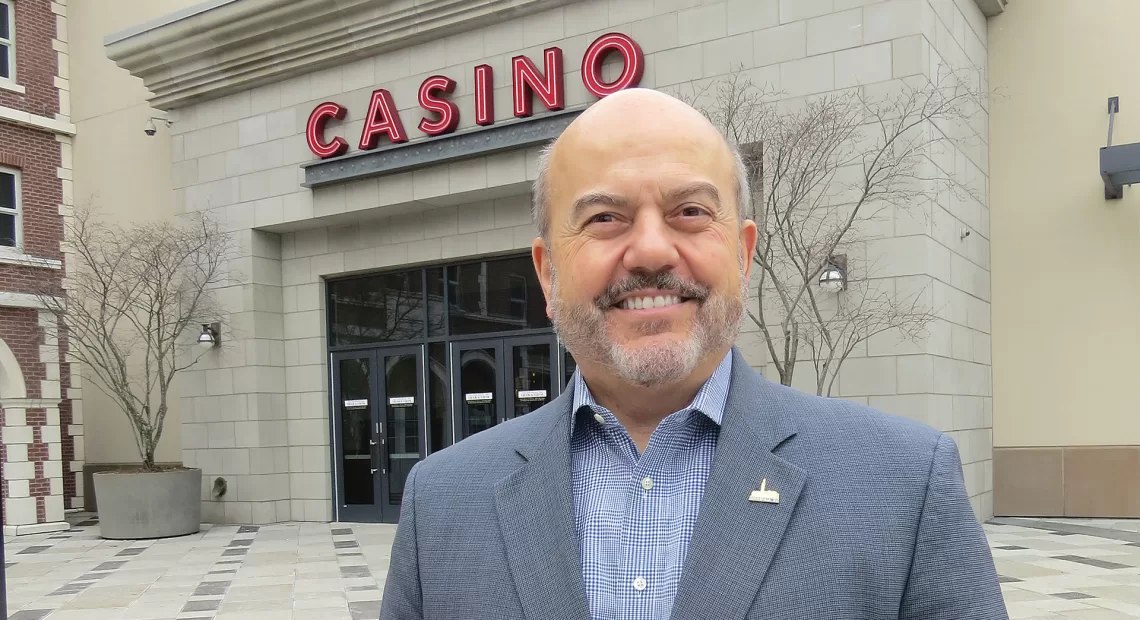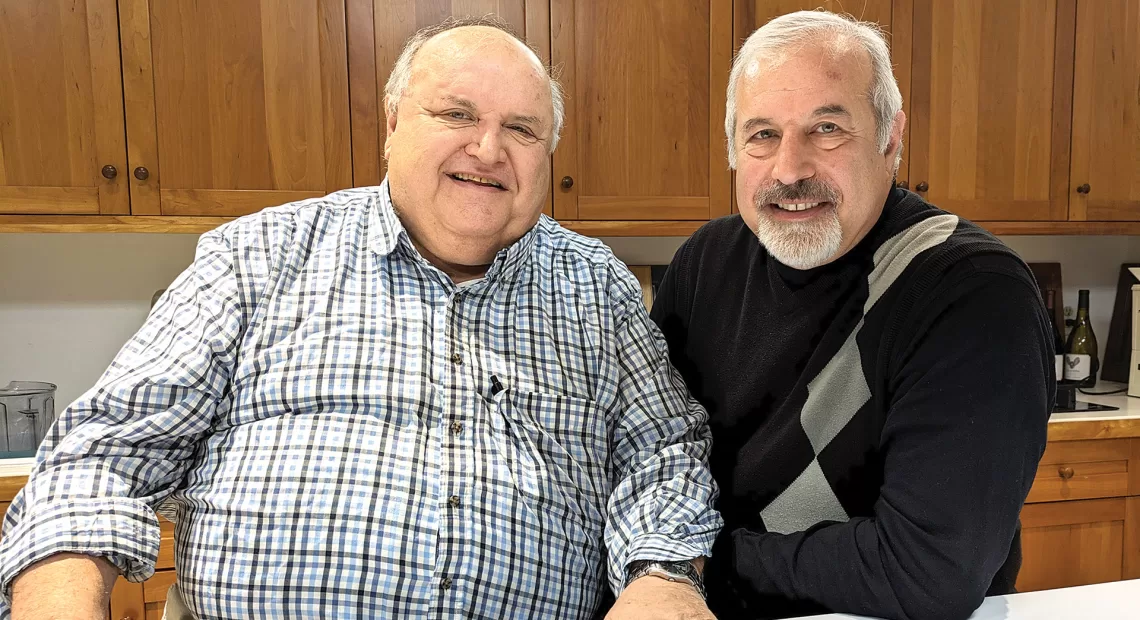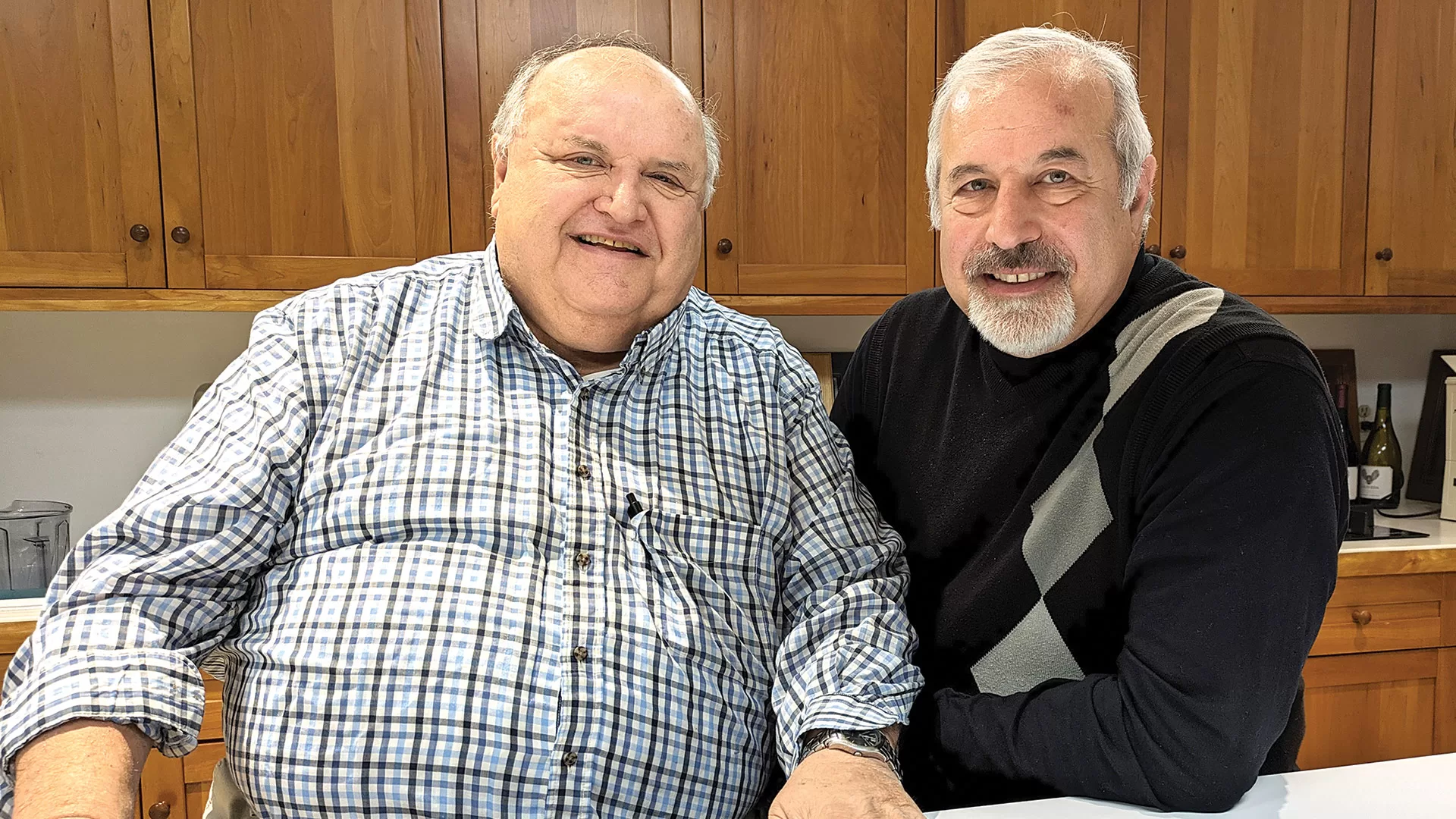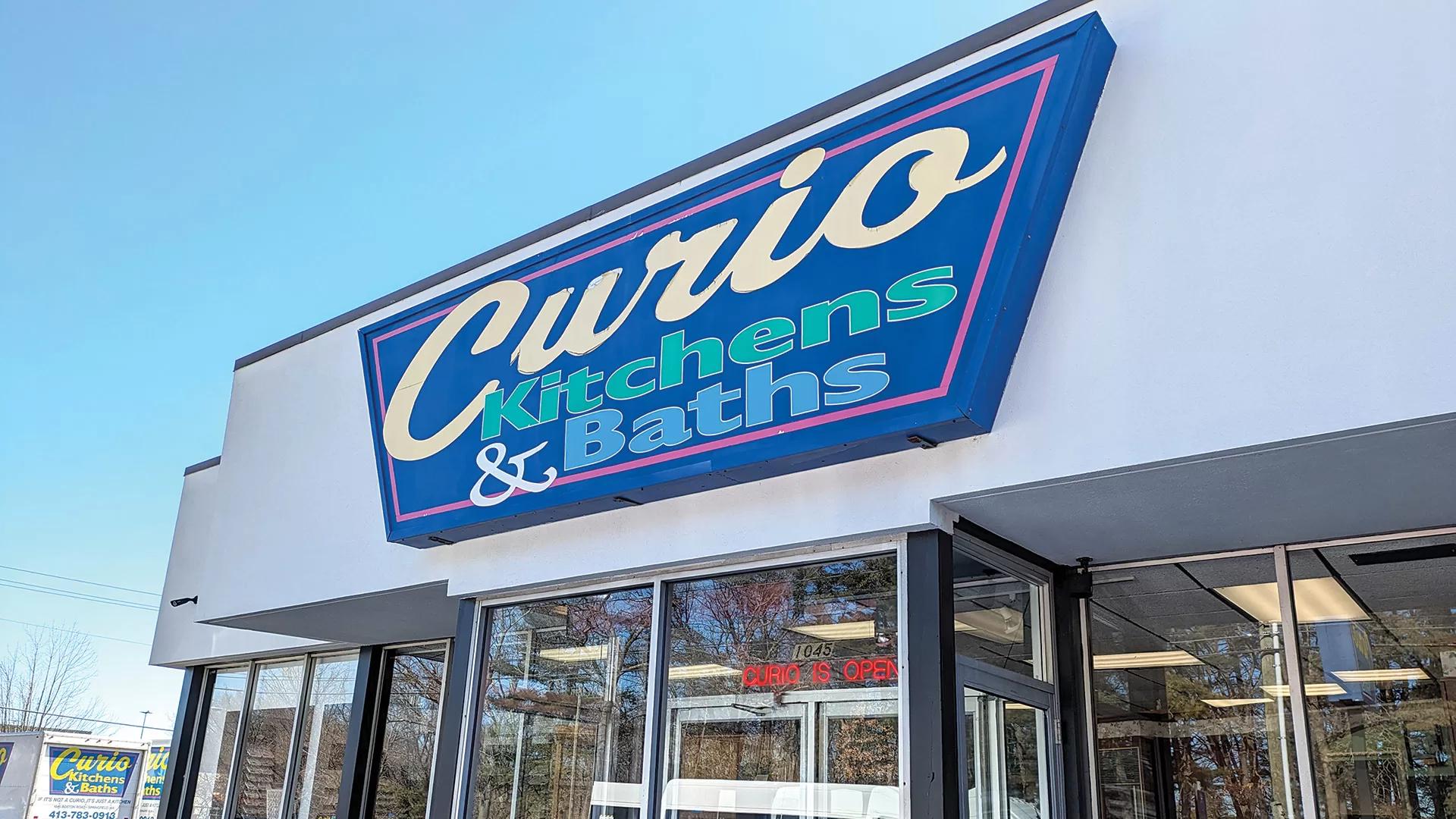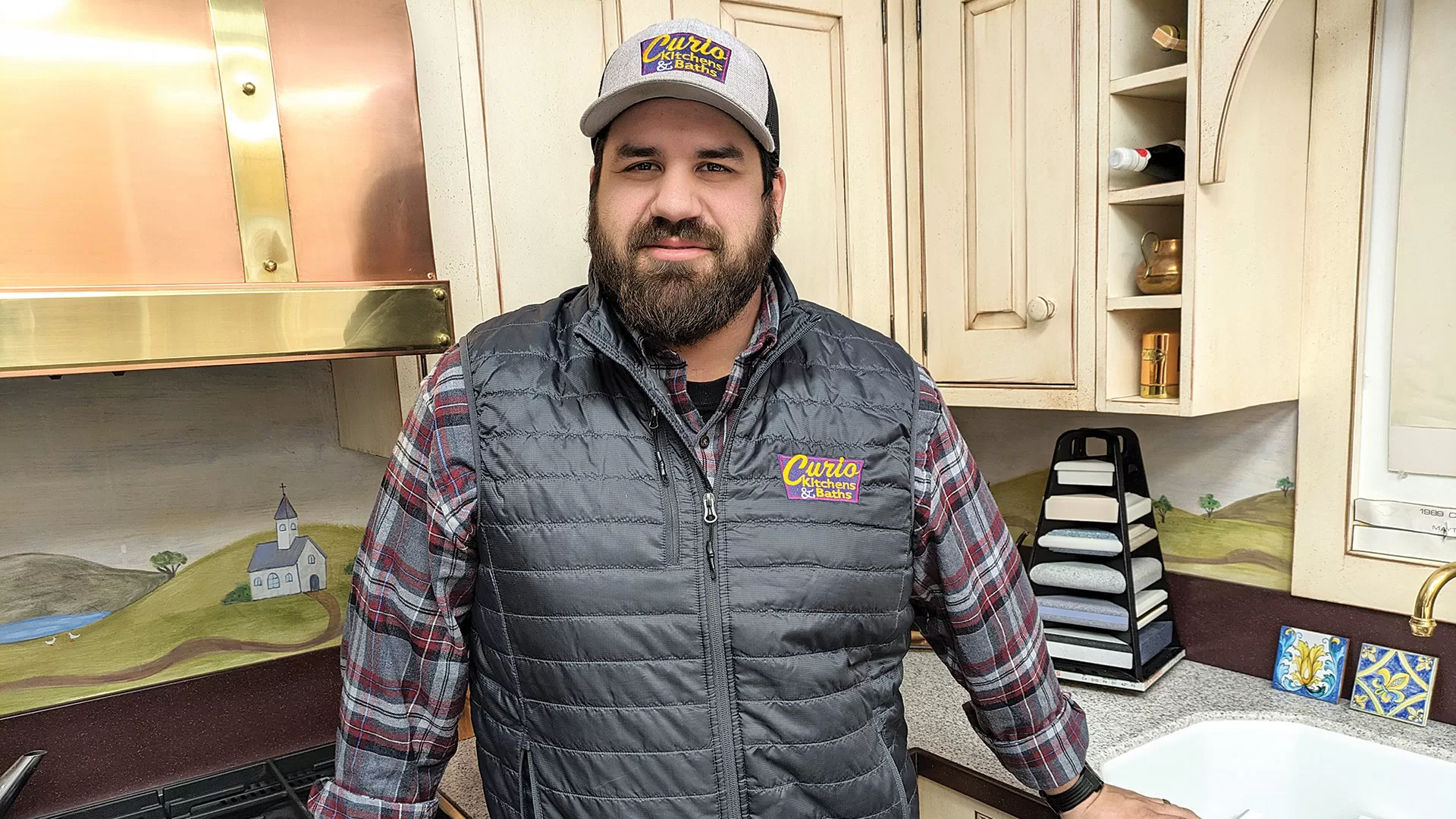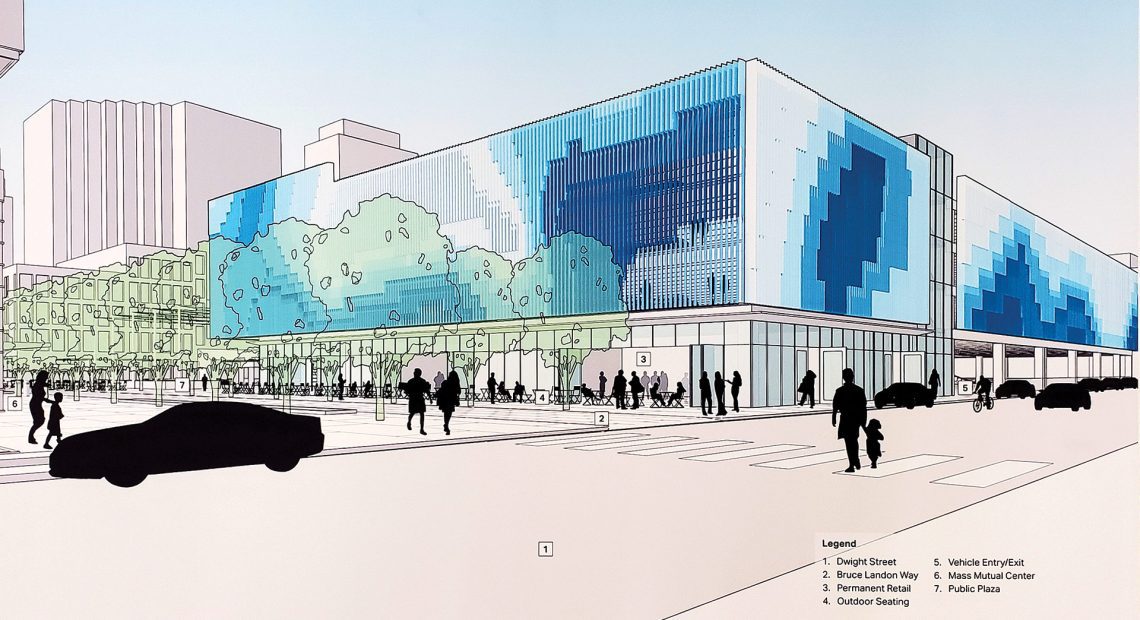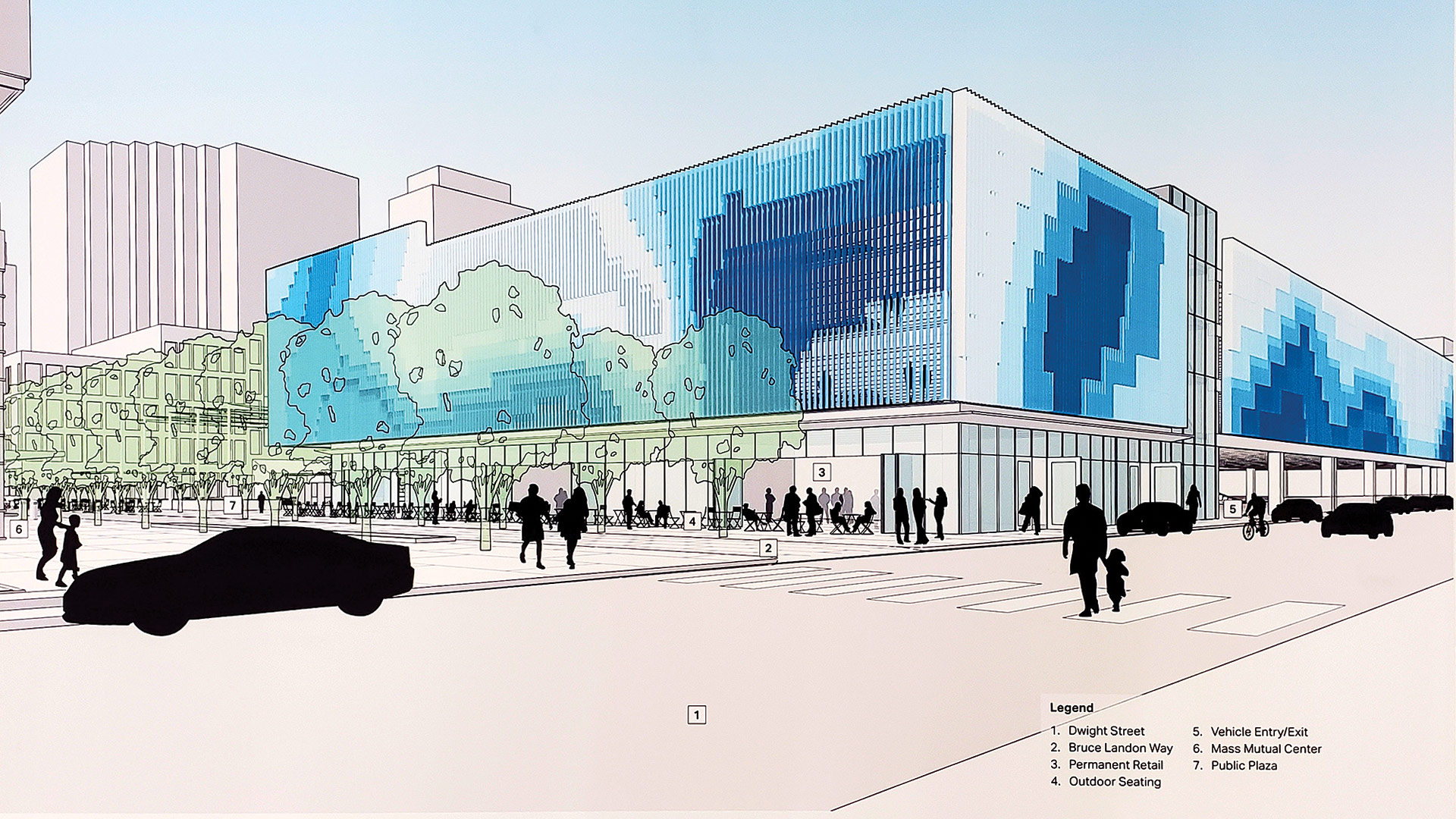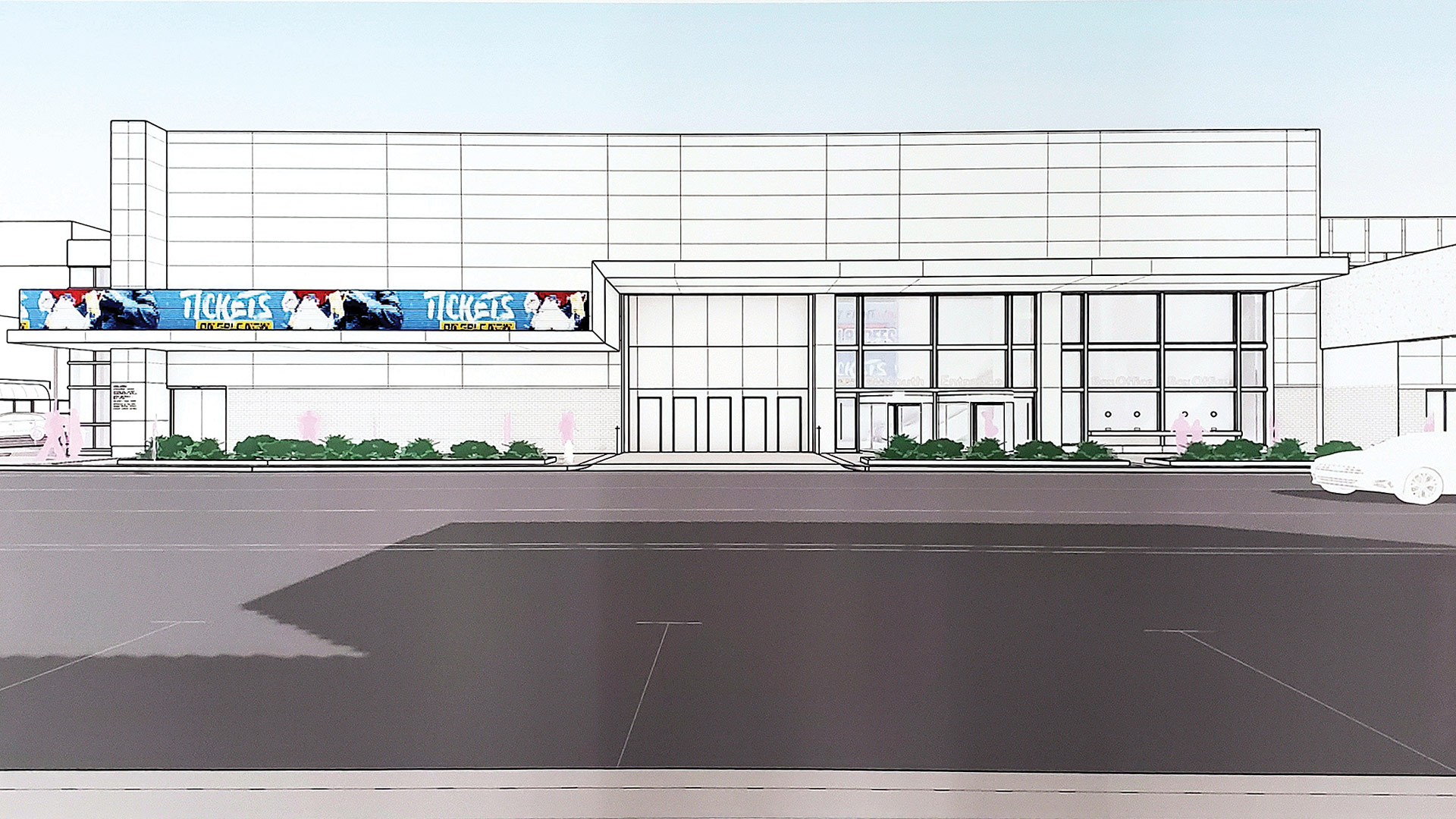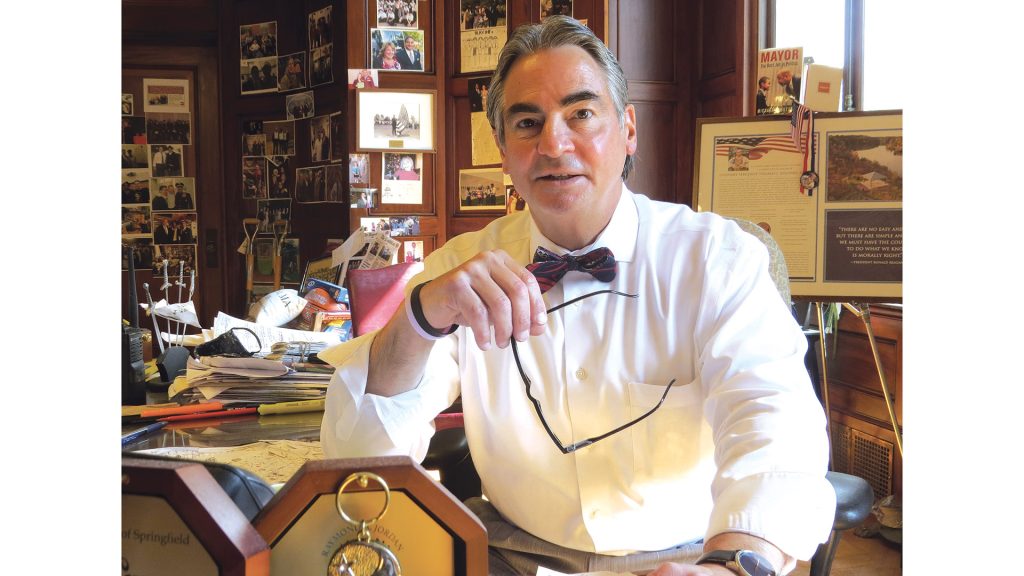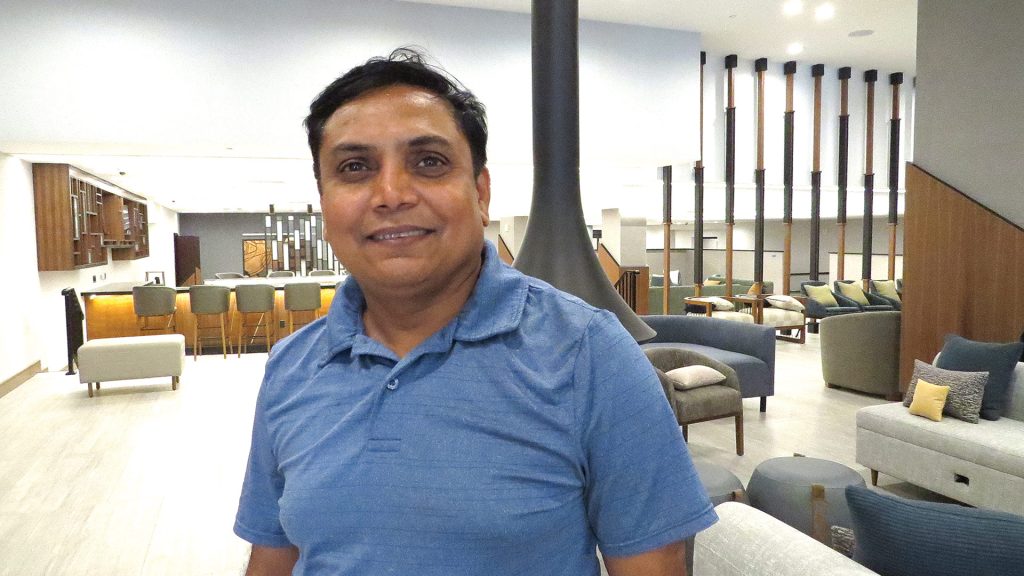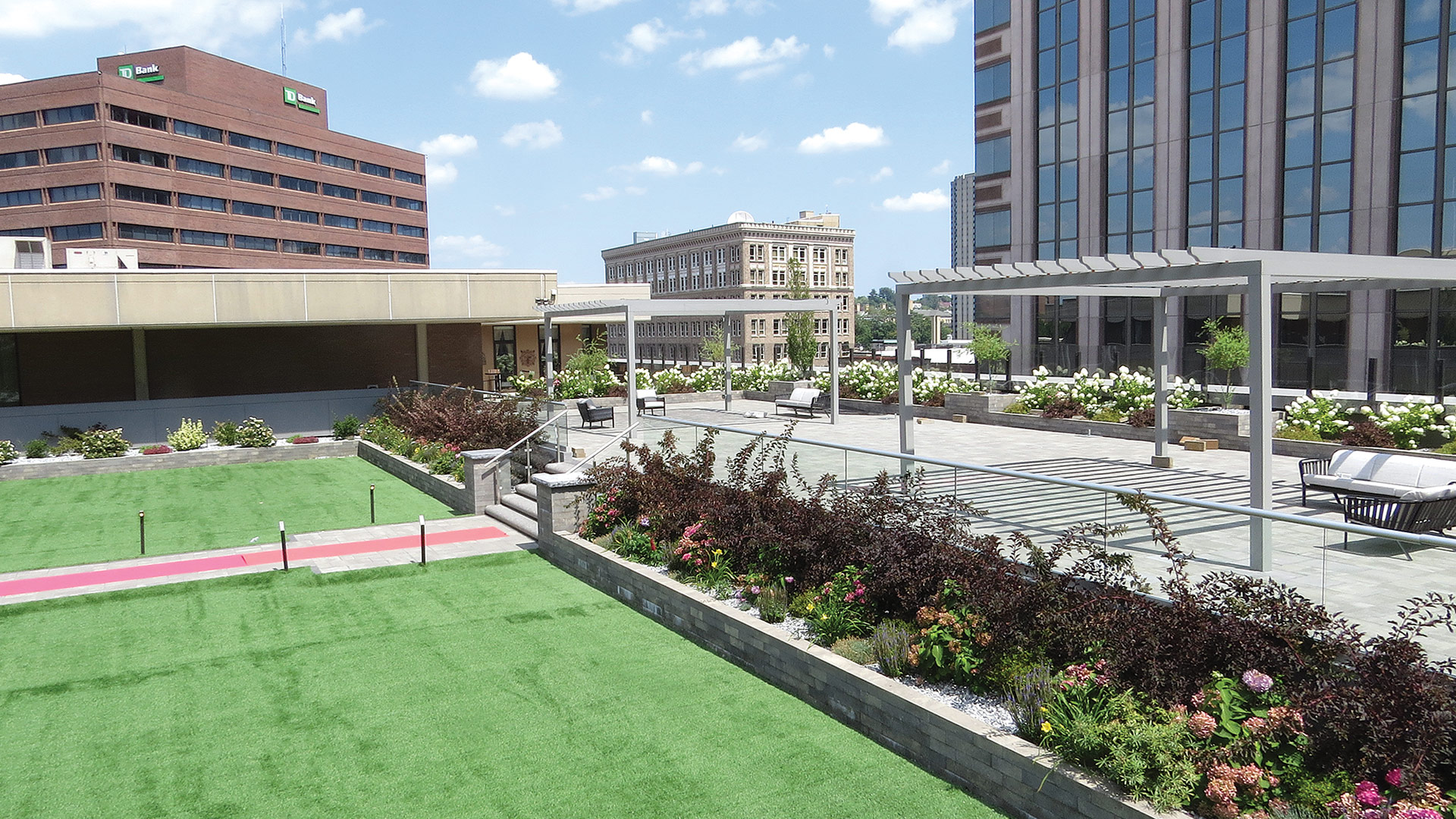Making His Case
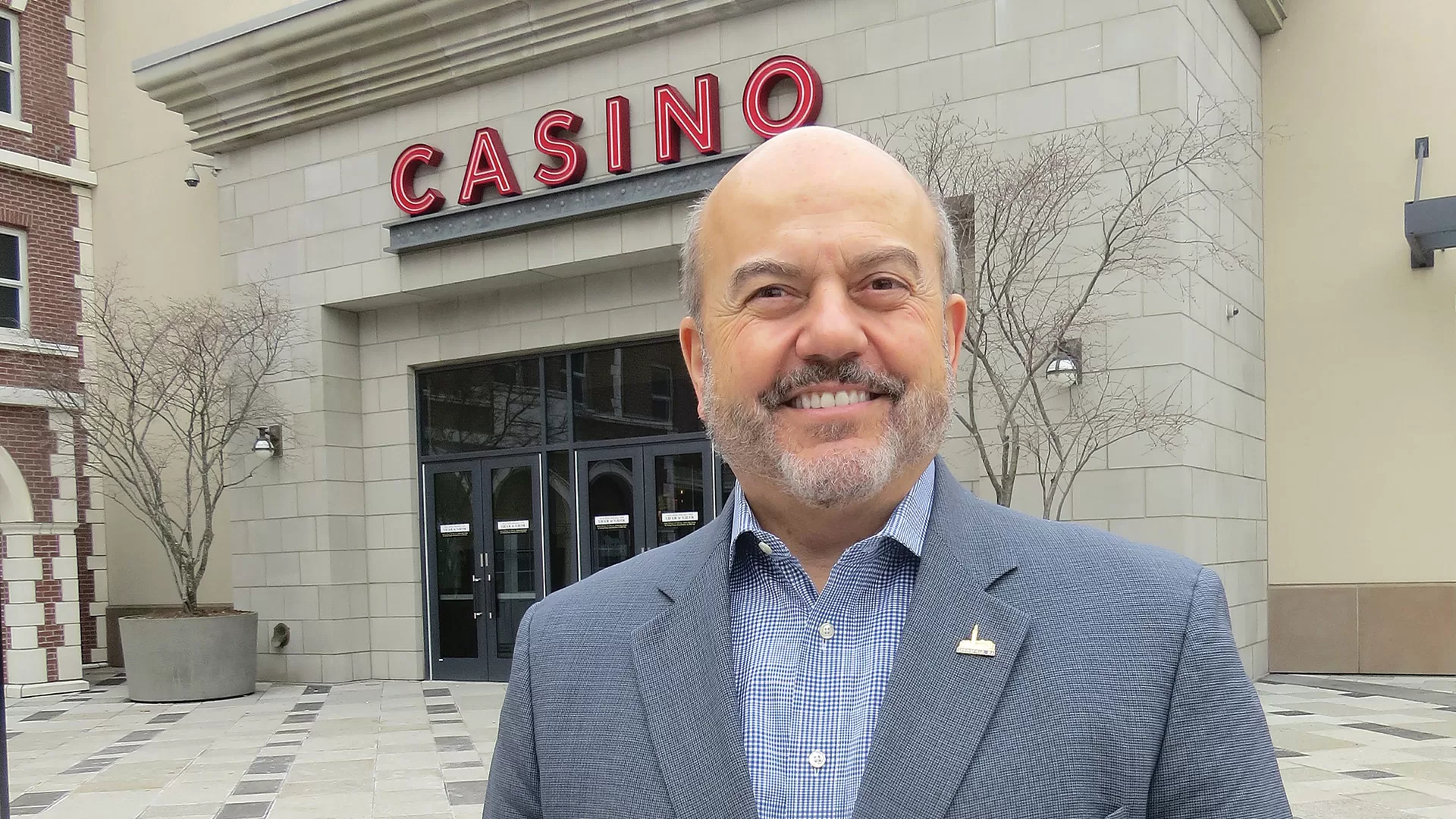
Louie Theros
Louie Theros is a trial lawyer by trade. In fact, his wife has told him on numerous occasions that she has never seen him happier than when he’s in the courtroom trying a case.
He would agree with that assessment wholeheartedly.
“I loved the strategy of it and sitting down with my colleagues and working themes of cases,” he told BusinessWest. “How we were going to deal with the opposite side’s parries, changes in strategy, and how we had to learn and deal with the jury and get them to like us and our case. I loved everything about it.”
But while he’s energized by the various elements of a courtroom fight, he acknowledged that his current challenge is probably the biggest and most intriguing of his career.
Indeed, Theros has seen his most recent career aspiration come to fruition with his appointment as president and chief operating officer of MGM Springfield, succeeding Chris Kelley, who held that role for four challenge-laden years (he arrived not long before the pandemic descended on the region) before departing at the end of 2023.
Prior to his arrival in Springfield, Theros served MGM as vice president, legal counsel, and assistant secretary at MGM Grand Detroit, and then in those same roles for MGM’s Midwest Group, which also included a casino in Ohio. In those various positions, he said he learned all aspects of the casino business, and especially what he called the “human-resources side,” a natural byproduct of working in employment law for 25 years before joining the casino giant and then continuing that type of work.
“I’ve told people here during my first few weeks that I’m sort of a ‘culture person,’” he said. “I’ve been on the human-resources side my entire career, working with a variety of companies, spanning Fortune 10 corporations to single-person entities, and I’ve learned a lot about the human element. So one of my goals here is to drive culture among employees and between our hourlies and our managers.”
“When we designed this … we didn’t design a glass, Vegas-like place; this fits into the community. Corporate-wise, we really felt the vibe of Springfield, and we really paid a lot of attention to this fitting into the community.”
That’s one of many goals he brings with him to MGM Springfield, where he becomes the third president and COO of that facility. He acknowledged that his predecessors, Mike Mathis and then Kelley, had specific assignments.
Mathis’s was to open the facility — a four-year process that ended in August 2018 — and then put it on solid ground. Kelley was then charged with ramping up, he said, adding that this process was complicated by COVID and then dominated by the introduction of sports gambling.
Generalizing, Theros said his assignment is to build on the foundation that’s been laid and simply try to improve on every aspect of the operation, a long list that includes the gross gambling revenue (GGR) generated at the facility, the entertainment shows at various venues, and the broad impact MGM Springfield has on the surrounding South End area and the region in general.
There are already some items on his to-do list — reactivating the former church that was home to a Kringle Candle outlet but has been vacant for several years, energizing the hotel’s spa, and adding to the entertainment calendar, for example — but mostly, at this early stage, he’s still watching, learning, getting to know the region, and, overall, setting the bar higher for the casino complex.
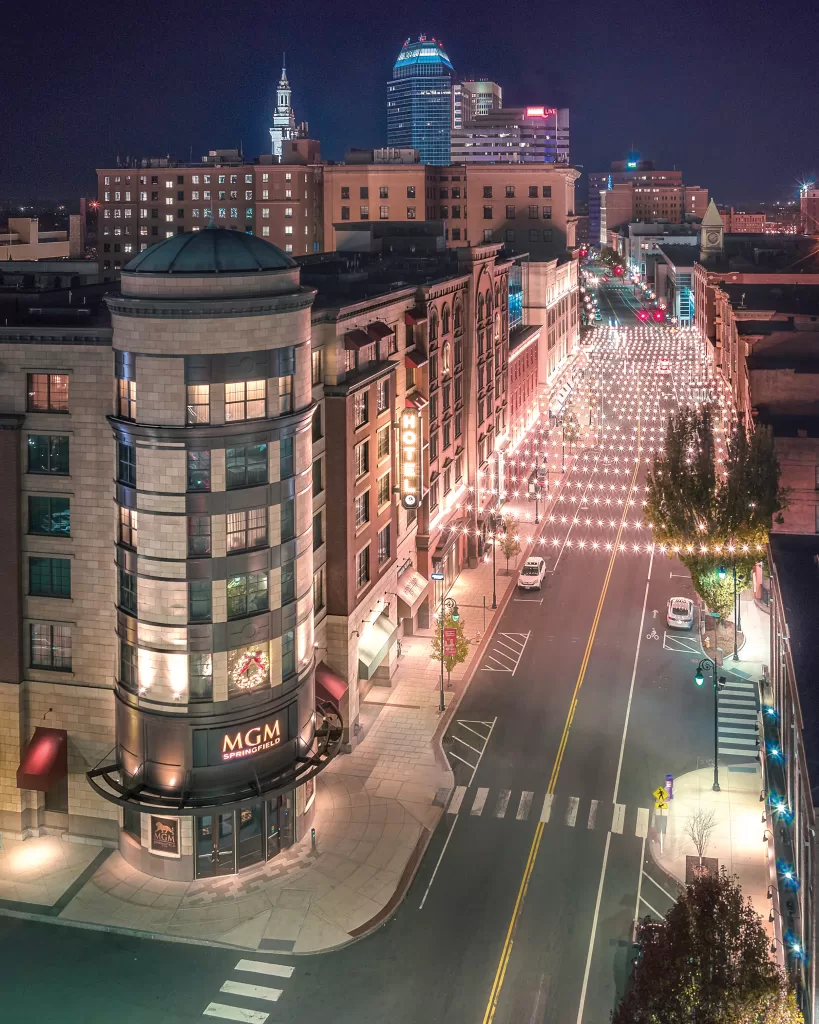
As Louie Theros takes the helm at MGM, he senses growing momentum, both at the casino complex and in Springfield’s South End.
(Photo by Jose Figueroa)
“This should be the best that Springfield has to offer — we have the resources to have the best steakhouse, the best Italian restaurant, the best food court, the best experience for someone who’s looking for something exciting to do on any night of the week,” he said, adding that, in most respects, the casino is already there, and with the others, it’s his job to get it there.
For this issue, BusinessWest talked at length with Theros about everything from the path he took to Springfield to what he wants to do with this opportunity to oversee his own casino.
Odds Are…
Theros is certainly no stranger to Springfield and its casino. Indeed, he came here during the pandemic to help prepare the facility for its reopening and was also part of the large team that opened the facility five and half years ago.
“I spent two weeks here then,” he said, gaining during that brief stint an appreciation for the property, what it meant to Springfield and the region, and the role it would play in helping to transform that section of the city.
“I’ve always loved this building,” he said, adding that his affection reflects both what the property is and what it isn’t. “When we designed this … we didn’t design a glass, Vegas-like place; this fits into the community. Corporate-wise, we really felt the vibe of Springfield, and we really paid a lot of attention to this fitting into the community.”
Overall, his role is to continually improve that ‘fit,’ and to build on a general sense of momentum at both the casino and the area surrounding it, punctuated by everything from solid GGR numbers to the recent naming of a preferred developer — Chicago-based McCaffrey Interests Inc. — for three properties across Main Street from the casino that have long been vacant or mostly vacant and in most ways eyesores.
Theros, who officially took the helm on Jan. 2, navigated a winding and somewhat unusual path to casino management.
He graduated from Vanderbilt University Law School in 1989, returned to Michigan, where he grew up, and soon thereafter began practicing civil-rights law on the defense side, handling human-resources and labor issues for clients of all sizes, including, eventually, MGM Resorts, which had opened a casino in Detroit in July 1999.
He handled work for the company for several years before joining MGM as one of its in-house lawyers in 2015, eventually becoming vice president, legal counsel, and assistant secretary, first for the Detroit casino and then for the Midwest Group.
Prior to joining MGM, though, he served on the board of the Detroit-based law firm he was with, Butzel Long, getting a taste, as he put it, of operating a large business.
“This was an $80 million to $90 million law firm at that time, and now, it’s much bigger,” he noted. “I really like operations, and I always have.”
Indeed, he said that, from the days he would bus tables for some of the Greek restaurant owners in town who counted his parents as their accountants, he’s always had a fascination for the operational side of companies and knowing and understanding every facet of a business.
“People have put their trust in me to lead this organization and lead this property into the future, and I really feel privileged to do this.”
And this fascination continued with MGM’s Detroit casino, he said, adding that he chose to stick his nose, as he put it, in places generally not frequented by in-house lawyers.
“I was very deliberate in educating myself about all aspects of a casino during my eight-plus years in Detroit,” he told BusinessWest. “I spent a lot of time socializing, whether it was having a cup of coffee with someone from table games or the slots department. And the food and beverage leader and VP of Hospitality were right next door to my office, so I spent a lot of time talking about that aspect of the business.”
And many others as well, he went on, adding that, as he acquired this broad base of knowledge, he arrived at a place where he believed himself ready to lead his own casino. He applied for such a role at MGM’s Ohio facility, and while he didn’t get the job, he said he certainly sharpened his teeth through the lengthy interview process and then “did some more learning.”
And when Kelley, with whom he worked at MGM’s Detroit casino, announced he was leaving his role in Springfield late last year, Theros applied again, and this time won the position. It’s a role, and a challenge, that he embraces.
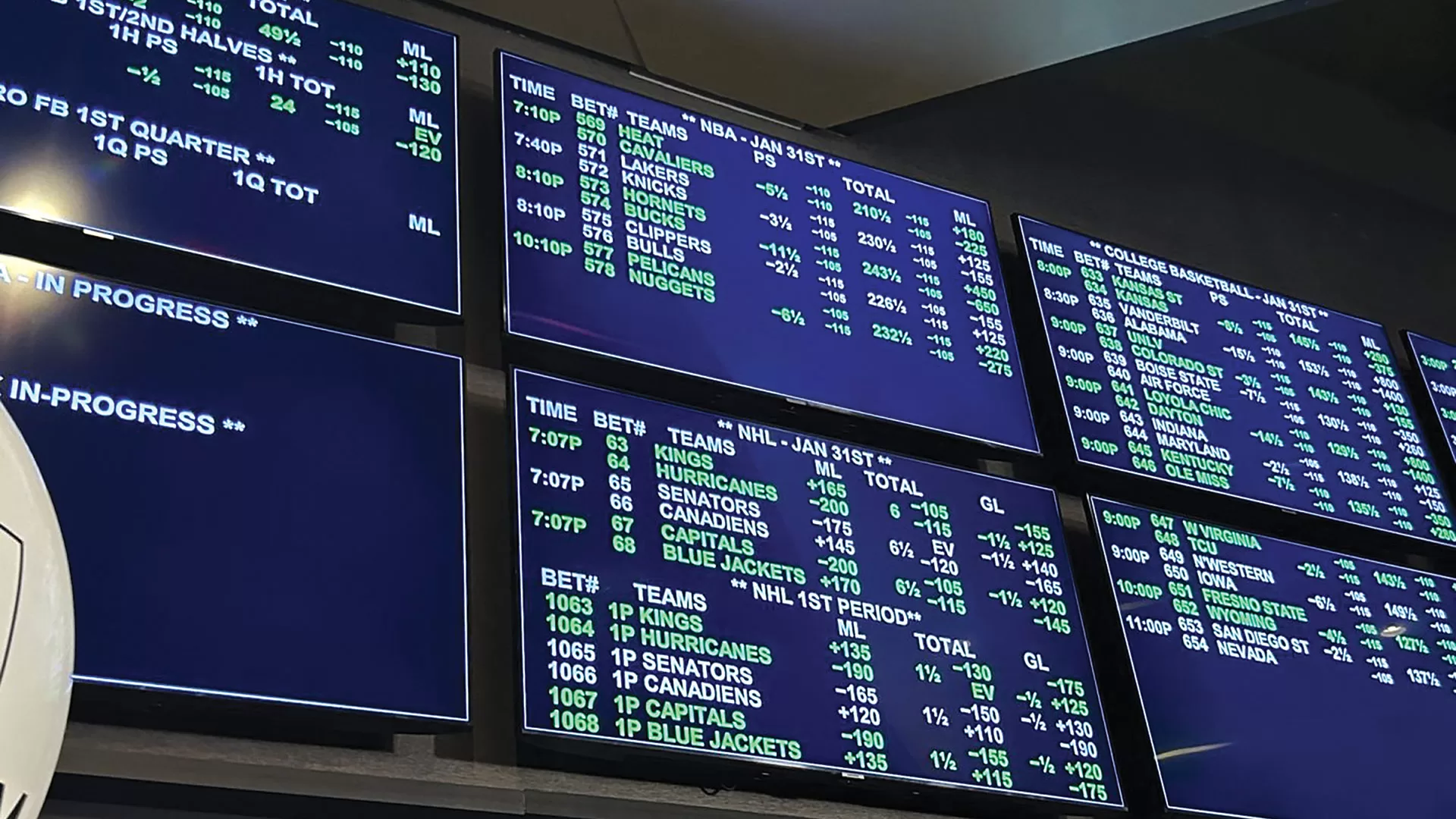
One of Louis Theros’s challenges will be to build on MGM Springfield’s newest gaming option: sports betting.
“People have put their trust in me to lead this organization and lead this property into the future, and I really feel privileged to do this,” he said. “I would most likely have run my law firm if I had stayed there, if I had not come to MGM — I was one of the top two or three people running the firm when I was there — and I’ve always felt the desire to lead some organization, and when I got to MGM and learned the business and got more involved in it, a few years in, I said to myself, ‘I know I can do this.’ I’m honored that they picked me to do this.”
Betting on Himself
When asked to informally write his own job description for the president and COO of MGM Springfield, Theros said there are two sides to that equation — internal and external.
With the former, he said his job is to set a positive tone for the staff, something he believes comes naturally. “I’ve always been a ‘set a positive tone at the top’ person,” he said. “And I would never ask my employees to do something I would not do, and I expect my leaders to set that same tone.
“And I want people to feel, as I do, that this is an absolutely fantastic place to work — I love coming to work every day,” he went on. “So, my job is to come in, make sure our employees like coming here and treat everyone with respect, and make sure they have an opportunity, much like I’ve had, to move up in the company.”
On the external side of the equation, he said his job description involves creating an experience for the guest and prompting them to put MGM Springfield top of mind when it comes to gatherings and ways to celebrate occasions and milestones in their lives — or just or a random Saturday evening.
“When they’re thinking of a special event — an anniversary, a birthday party, whatever it is — we want them thinking, ‘we should go to MGM Springfield because it’s a wonderful place to go, we get great service, and we could get great food.’ My job is to deliver that.”
Theros said it’s also his job to get involved in the community, and to inspire others to get involved as well.
Overall, he’s encouraged by what he sees, both at his casino and in the community, citing everything from apparent progress on the properties across Main Street, including the Clocktower Building and the Colonial Block, and the rapid leasing of the apartments in the revitalized former Court Square Hotel (a project MGM has taken part in), which is a source of pride but also some frustration for Theros, who has been looking for a place a live.
“At 31 Elm, they have 74 units; they rented them all in 30 days,” he said. “I couldn’t find a place, even across the street. That’s fantastic; that shows me that the city and the surrounding area are really robust.”
Theros’s personal car didn’t arrive in Springfield until late last month, but he made use of the casino’s limo to visit various communities in the region — and even one of his competitors — while also walking to events ranging from a few Thunderbirds games to Red Sox Winter Weekend at the MassMutual Center.
“At 31 Elm, they have 74 units; they rented them all in 30 days. I couldn’t find a place, even across the street. That’s fantastic; that shows me that the city and the surrounding area is really robust.”
Returning to his casino property and the multi-faceted operation there, Theros said that, to date, he’s mostly been observing and making notes as he compiles a more comprehensive to-do list. He stressed that the operation is maturing and reaching, if not exceeding, many of the expectations the city and region had when the casino opened to considerable fanfare on that hot August day in 2018.
“Chris [Kelley] has gotten us to a nice place; the whole team has,” he told BusinessWest. “My goal, quite simply, is to build on that.”
Bottom Line
When asked what he’d rather be doing — trying a case or managing a casino — Theros paused briefly before answering.
“For pure adrenaline, trying a lawsuit, trying a case in front of a jury — that’s an adrenaline rush,” he said. “When someone high-fives you after you’ve cross-examined someone — I had one of my associates do that — that’s a big rush.
“For personal satisfaction, though, it’s running a casino,” he went on. “I have more direct impact on an outcome here than I do at a trial because the jury is the arbiter at the end of the day.”
Still, he’s hoping to create something approaching those cross-examination rushes at the casino on Main Street as he takes on what he called the “cherry on the top of his career,” and an opportunity to really make a case for MGM Springfield.



